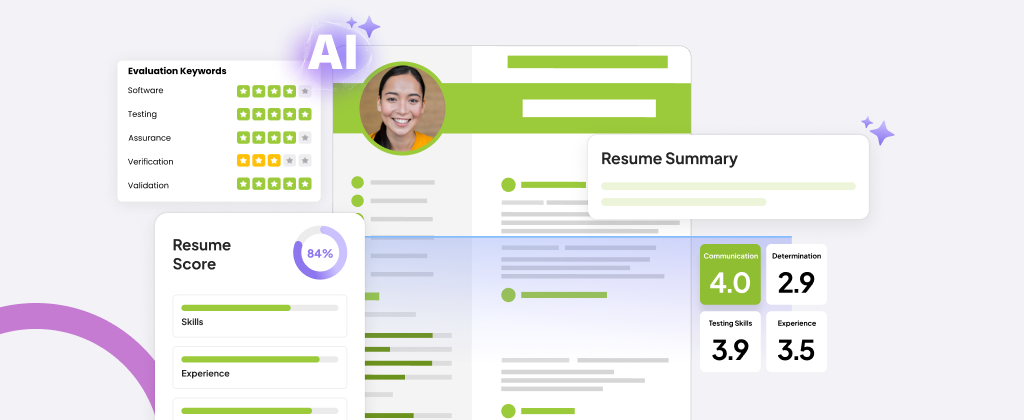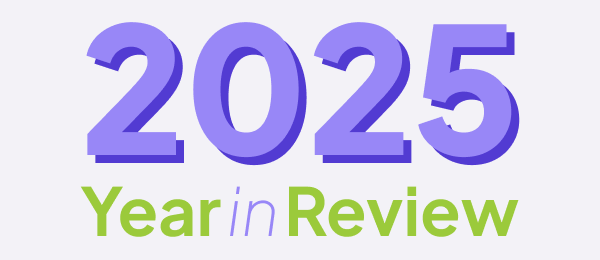9 Ways AI Can Identify Soft Skills in Job Applications
Soft skills like communication, teamwork, leadership, and adaptability are essential for success in any role, yet they’re often the hardest to assess during the hiring process. AI is changing that!
Modern AI tools can scan and analyze job applications for cues that go beyond job titles and qualifications. They look for specific keywords and assess language, tone, structure, and behavior patterns to identify valuable soft skills, helping employers make informed hiring decisions.

A variety of hiring platforms and assessment tools use AI to detect soft skills, each using its own approach. From resume screeners and video interviewing platforms to AI-driven chatbots, these tools help recruiters identify candidates with strong interpersonal traits. If you’re applying for a job, it’s important to know how these tools work, so you can effectively showcase your soft skills and set yourself up for success.
Can AI Identify Soft Skills in Job Applications?
Yes, AI can spot soft skills in job applications, and it’s quickly becoming a crucial part of modern hiring.
While technical skills are easier to quantify, soft skills like communication, teamwork, and adaptability are harder to assess from a resume alone. That’s where AI comes in. By analyzing how candidates describe their experiences, tone of language, and other nonverbal cues, Al solutions like IDP can uncover key interpersonal traits that are often buried between the lines, It helps employers go beyond job titles and qualifications to find candidates who not only can do the job but will thrive within the team and company culture.
So, how does this work in practice? Here are 9 key ways AI can identify soft skills in job applications:
1. Keyword Detection
AI systems scan resumes and applications for pre-set and job-related keywords that highlight soft skills, terms as leadership, collaboration, problem-solving, empathy, and time management.
These keywords help the tool recognize the candidate’s qualities that employers are looking for. It’s similar to how a search engine works – if your application has the right soft skill terms, it’s more likely to catch attention. Use job-relevant soft skill keywords backed by examples to make your application relevant and discoverable.
2. Context-Based Language Analysis
AI doesn’t just focus on keywords, it also evaluates the context in which the terms appear. For instance, saying “I worked in a team” is vague, while “I led a cross-functional team to streamline operations by 20%” is rich in context, showing leadership and collaboration. By understanding how to add AI without rewriting app, companies can enhance existing hiring platforms to detect these skills automatically. As more candidates learn techniques to Bypass AI filters, platforms must rely on deeper context analysis to ensure authenticity. AI looks for action-oriented language and measurable impact, not just buzzwords. However, one drawback is that AI-generated content or evaluations can sometimes sound a little robotic. That’s why it’s important to humanize AI so the insights and messages feel more natural and personal.
If you’re struggling to express your experience clearly, tools like AI writer can help. Just enter a prompt, and it’ll generate more polished and meaningful content, making your application more compelling and easier to scan for context-rich soft skills. With the right guidance, AI human writer can also highlight your strengths in a way that feels natural and engaging.

3. Behavior Pattern Recognition
Some AI recruiting tools are designed to identify behavioral patterns across your resume and cover letter. They look for consistent evidence of soft skills, such as time management, adaptability, or initiative. For instance, repeated examples of managing tight deadlines or leading group efforts signal reliability and leadership. They assess these patterns to predict how candidates may behave in real-world scenarios.
4. STAR Method Identification
Many candidates use the STAR method – Situation, Task, Action, Result – to frame experiences and how they’ve overcome challenges. This method helps them organize their answers clearly. AI tools can detect this structure and analyze it for insights into the candidates’ problem-solving skills, conflict resolution, and communication skills.
Stories framed in this method help AI evaluate the depth and application skill of soft skills, especially in high-pressure or complex situations.
5. Communication Clarity Analysis in Cover Letters
AI tools can assess how effectively you can communicate through your cover letter by looking at clarity and structure. A well-written, easy-to-follow message demonstrates soft skills like professionalism, communication, and attention to detail.
To help refine your message, tools like the paragraph rewriter from paragraph-generator.com can be useful. It offers a quick rephrasing option to improve structure and flow without changing your intended message, helping you present a more engaging cover letter.
It’s simple and quick to use – just enter your text, and it rewrites the sentences with better alternatives in seconds. Additionally, it offers various rephrasing modes based on your specific needs. This AI-powered tool enhances your soft skills as well as helps you get your work done quickly.
6. Resume Structure and Clarity Check
AI also evaluates the formatting and readability of resumes and cover letters. A clear and organized structure reflects attention to detail and strong communication, both of which are key soft skills. A disorganized resume with inconsistent formatting or unclear language, on the other hand, can hurt your chances. To make a strong impression, focus on improving sentence structure, grammar, and overall clarity across all your application materials.
7. Job Role and Experience Alignment
AI can compare past job roles with the responsibilities and soft skills required for the open position. If you’ve held roles like Team Lead, Customer Success Manager, or Project Coordinator, AI might infer skills communication, patience, or strategic thinking, even if they’re not explicitly stated.
AI helps recruiters assess how well you fit the role by comparing your experience with job requirements, titles, and relevant keywords in your resume. A strong alignment improves your chances of moving forward in the hiring process.
8. AI-Powered Assessments and Simulations
Some companies now use AI-driven skills assessments or chatbots to simulate workplace situations. These tools help employers assess how you think, react, and communicate in different situations. They can create realistic scenarios and analyze your answers as you respond. As candidates, you may be asked to respond to prompts that test decision-making, empathy, or problem-solving under pressure. These tools – like those used by the best package delivery service teams – help recruiters evaluate soft skills in real time.
9. Nonverbal Cues in Video Interviews
In video interviews, AI can evaluate nonverbal communication, including gestures, speaking pace, and vocal clarity. These subtle cues can signal confidence, approachability, and other soft skills that might not be obvious on the resume. Combined with verbal responses, they give a more complete picture of the capability.
Conclusion
AI helps recruiters assess how well you fit the role by comparing your experience with the job requirements, title, and keywords across your job application materials. From the language you use in your resume to your body language in a video interview, every detail contributes to how your soft skills are perceived. To stand out, focus on clarity, consistency, and storytelling.




